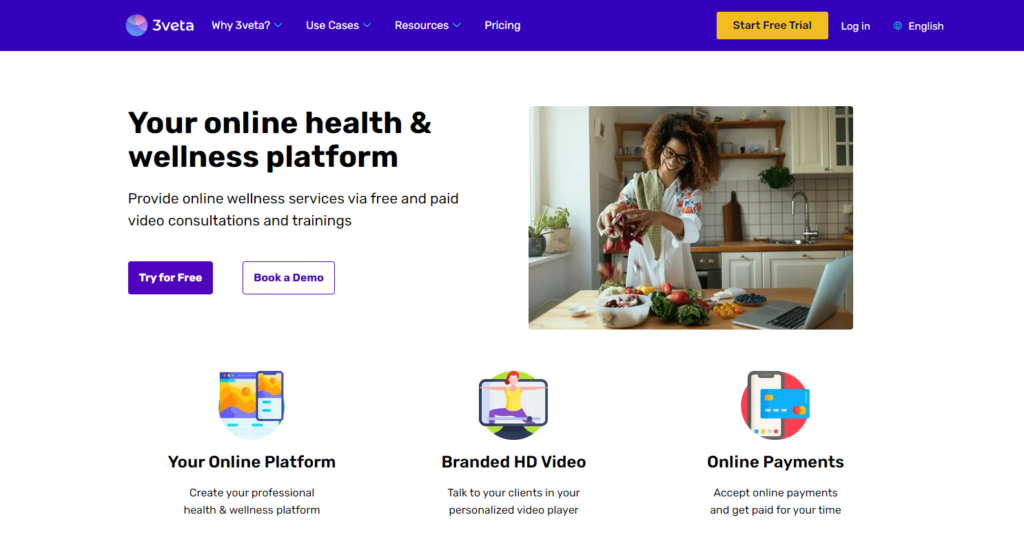In the current digital environment, many businesses and start-ups find an opportunity to flourish and explore new grounds by relying on online platforms and marketplaces.
However, there are no precise definitions of these technological affordances, the boundaries are blurred and sometimes business owners struggle to see which one would be the better option for them.
It is important to make it clear what each of them means, has to offer, and lacks in order to confidently leverage its features.
In this article, we’ll try to transform all question marks into full stops regarding the issue of choosing to be a part of a marketplace vs. a platform.
Table of contents
What is a marketplace?
When it comes to marketplaces, Kilian Veer defines them as “digitally enabled institutions enabling the exchange of demand and supply where at least two suppliers and two customers are brought together”.
In contrast to a platform’s goal of making one supplier available to many customers, marketplaces are built to facilitate the trade between many suppliers and many customers.
A business can scale globally as a marketplace if it gathers together service providers from a particular niche that is in demand and if it hasn’t been easy enough for customers to get access to the services in question.
However, as opposed to a platform, the owner of the online marketplace is not in possession of all the products displayed on the website.
Hence, each merchant is responsible for delivering the goods or services to the clients after the purchase is made.
Types of marketplaces
Of course, there are different types of marketplaces.
They could be either goods-centered or service-oriented. In both cases, there are three types of product-selection marketplace strategies.
Vertical marketplaces
A vertical marketplace offers only one type of product (or service) but is offered from various suppliers. Since it targets a specific niche, it also has a narrower customer base.
For instance, if your business is entirely dedicated to nutrition coaching, you already know the industry, and you have successful coaches in your contacts list, then, you could easily create your own marketplace.
In other words, your service-oriented P2P marketplace will connect various nutritionists to people who would like to improve their eating habits.
One advantage of vertical marketplaces is that they focus more on quality and less on the quantity of the products or services they offer.
Horizontal marketplaces
A horizontal marketplace offers different products from the same category and a little broader compared to the vertical one.
To put it into practice, let’s use the same example with nutrition coaching.
If you want to establish a horizontal marketplace, you’d want to have not only the services of nutritionists displayed on your website, but also other health coaches – gym coaches, yoga and mobility instructors, and so on.

You’d be interested in every professional who could contribute to the customers’ physical health.
Global marketplaces
A global marketplace, on the other hand, offers the entire alphabet of products.
It covers a vast range of categories, subcategories, products, and services and it could be the perfect place for those looking for something specific but don’t know where to go.
Global marketplaces are also not bound to a specific location, they may be based in the United States or Europe, but the services and products listed may be coming from all over the world.
Benefits of being a marketplace
The benefits of being a marketplace are numerous, but we’ll mention only the main ones.
In terms of traffic and audience engagement, a marketplace is more likely to be successful than a platform.
This is because marketplace software is usually designed to encourage customers to make a purchase and urge suppliers to add more products/services to their listings.
Also, because of their huge variety of products, a customer might purchase something that they didn’t intentionally come to buy at first.

In terms of scalability, online services marketplaces again take the win because they don’t need extra storage spaces and products.
In case there is an increase in demand, you can simply seek new vendors.
Downsides of being a marketplace
There are two main disadvantages of being a marketplace.
Firstly, your marketplace business strategy will be entirely focused on volume.
You’ll need to generate traffic and, as we already pointed out, you’ll have to find different vendors that are willing to join your marketplace.
Since marketplaces rely on listings and commission fees solely, you’ll need to secure a huge amount of both in order to stay profitable.

The second disadvantage of marketplaces is that they don’t work in favor of brand recognition and awareness.
Buyers usually remember the marketplace as the main source of goods/services, not the specific vendor they purchased from.
This and the lack of customer analytics and communication may prevent suppliers from displaying their products or services in a marketplace.
Not being able to track your performance or get in touch with customers is a huge disadvantage when you’re navigating through such a competitive environment.
Therefore, it might be difficult for marketplaces to lure vendors into participating, which in turn causes issues with the volume of offerings.
💡 Pro tip
Add appointment scheduling, booking pages, video calls, and payment processing options within your marketplace to increase your value proposition and decrease churn. See how other marketplace owners achieved it.
What is a platform?
According to Michelle Vautier, “a platform provides other businesses with the services and marketing channels they need to connect with customers. But ultimately, the companies or other entities that operate on such a platform are responsible for seeing a deal through”.
Essentially, platforms allow companies, smaller teams, or individual sellers to create their own space to communicate with clients and eventually sell their goods/services.
Put another way, one supplier offers many goods to many people. This is the simplest explanation of how a platform works.
Of course, it could be also related to providing online services.
Consultants, coaches, teachers and tutors, and many other professionals use platforms to organize their teams and get in touch with their clientele easier.
Usually, they charge per session, and either the platform takes a small percentage of each transaction or they pay a monthly/yearly subscription fee.
There are also exchange platforms for people who’d prefer to trade their goods/services for something else in return.
TradeMade app allows you to exchange a couple of math lessons for a pair of concert tickets. The idea is to be eco-friendly, save money, repurpose unused objects and use your skills to help someone.
Similarly, BizX offers business owners to exchange services.
For example, an accountant agency might require a restaurant’s services for the catering of a business party. In return, the restaurant might purchase a consultation with an accountant for a tax-related issue. However, this is more on the side of marketplaces…
Benefits of being a platform
Conversely, e-commerce platforms have a higher profit margin on each individual sale, which makes it possible for business owners to focus on quality sales and not so much on volume.
If you’re selling expensive high-quality goods or services, a couple of sales could cover your monthly target.

Also, platforms allow for better vendor-buyer interaction, which works in favor of brand awareness, loyalty, and customer engagement.
Knowing your customers means that you can send them personalized notifications when you have new products/services available, you can track your progress, and you can benefit from the feedback they provide.
Even though you’ll still have competition, you won’t be obliged to supply crazy amounts of products and services in order to keep up or stand out.
Downsides of being a platform
First and foremost, for platforms is way more difficult and expensive to generate traffic.
It could take a lot of time trying to target the right audience.
You’ll also have to invest in marketing campaigns to make yourself visible and recognizable.
Simply put, it takes much more time and effort to gain popularity and establish yourself as trustworthy on the market as a platform.
Furthermore, in case the demand suddenly increases you’ll have to onboard more experts to deliver services.
To sum it up
Being a marketplace vs. platform is a difficult dilemma that should be looked at from the lens of your business goals and strategies.
Marketplaces can be applied to almost any industry, they are also cheaper and faster to set up compared to platforms.
On the other hand, platforms help you establish your own brand on the market and give you a way better customer-seller experience.
Whether you’ve decided to build your own platform or you want to increase your marketplace revenue, 3veta can help you succeed with both.
